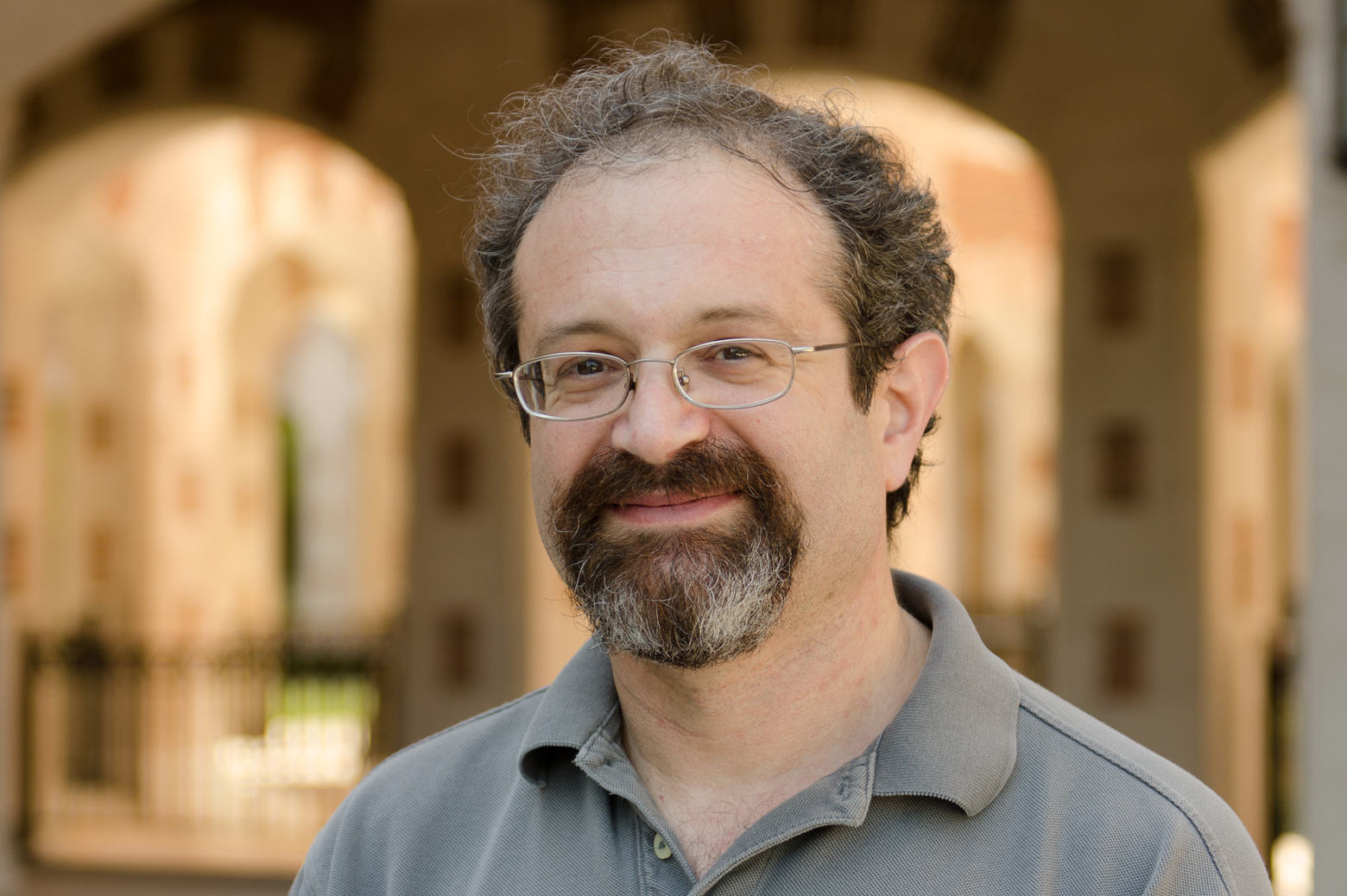Mark Ackerman receives European CSCW Lifetime Achievement award
Prof. Ackerman recognized quite early how social context could harness computing technologies for the development of systems in expertise finding and sharing, as well as in collaborative information access.

 Enlarge
Enlarge
From the time he first worked with computers in the 1980s, Mark Ackerman has always understood the human part of human-computer interaction. He knew that people didn’t use computers just for research. They wanted to gossip, play games, share knowledge – to share life, both personal and professional.
Ackerman, Professor in the University of Michigan School of Information (UMSI) and in Computer Science and Engineering (CSE) at the College of Engineering, has kept this basic principle in mind throughout his groundbreaking and highly-recognized research in computer-supported cooperative work (CSCW).
That recognition will increase on Aug. 31, 2017, when Ackerman, who also is UMSI’s George Herbert Mead Collegiate Professor of Human-Computer Interaction, will receive a Lifetime Achievement Award at the 15th European Conference on Computer-Supported Cooperative Work in the British city of Sheffield.
Ackerman’s early work “opened the research field of knowledge sharing from a CSCW/practice perspective, with a distinct socio-technical approach,” noted the European CSCW shared in a prepared statement.
That work portended “features that have characterized his whole career,” the statement continued, including “development of novel concepts to…understand a new phenomenon; construction of innovative computer systems based on those concepts, and experimenting with them; and high-quality ethnographies of real-life complex settings….”
These ethnographies – scientific descriptions of people’s culture and customs – help to inform concept formation and show what happens in real life when new systems are actually put into use. Developing such a complete approach, noted the statement, “needs both a vision and skills, capability and dedication to realize the vision, and such a combination is scarce.”
“I did not expect this,” Ackerman says of the achievement award. “I’m very honored.”
“Mark Ackerman is a very deserving recipient of lifetime achievement recognition from ECSCW,” said UMSI Dean Thomas A. Finholt. “His work with Answer Garden, (a prototype knowledge-sharing computer system) and subsequent systems pioneered a new and fruitful domain of CSCW research. In addition, Mark has been a highly visible connection between the European and North American CSCW communities, and a key mentor and role model for junior CSCW researchers.”
Brian D. Noble, Chair of CSE, noted that “Professor Ackerman recognized quite early how social context could harness computing technologies for the development of systems in expertise finding and sharing, as well as in collaborative information access. He developed Answer Garden in 1991, just as the World Wide Web was emerging and before the concept that people and context should be at the center of knowledge-sharing systems was widely recognized.”
Ackerman, in light of the award, reflected on his career as someone who early on “moved information management to knowledge-sharing, which was about how people could also be incorporated into systems. I brought a socio-technical perspective then, especially in doing both software and social analytic studies – which was unusual then.”
Also, he recalls, “I started looking at online communities, and Q&A communities, as places where people shared information, and I kept constructing prototype systems.”
Then and now, “my particular interest always has been on collective information access, which includes collection, maintenance, use and reuse,” Ackerman says.
Ackerman developed Answer Garden as his thesis project. It was one of the first computer-based systems for locating and sharing expertise. His papers on Answer Garden are widely regarded as landmark works in CSCW and have been cited over 1,000 times. The work incorporated social networks into expertise sharing, and thus foreshadowed later social computing developments.
Ackerman received his PhD in Information Technologies from the Massachusetts Institute of Technology (MIT) in 1994, where he later became a research scientist. He was a faculty member for the University of California, Irvine before coming to the University of Michigan in 2001. The same year, Ackerman received an NSF CAREER Award, which recognizes outstanding junior faculty.
In 2013, he was elected a Fellow of the Association for Computing Machinery (ACM), a prestigious honor. He is a member of the CHI Academy (HCI Fellow). He subsequently received many awards in his field and as an educator.
Today, Ackerman leads the SocialWorlds Research Group, which focuses on the interplay of the social world with computational systems. Also, says Ackerman, “I’m currently working on health, family and collective memory, and crowd-sourcing,” with the emphasis, as always, on the human aspects. “I’m investigating knowledge and expertise sharing in health from the patients’ perspective as well as the doctors’.”

 MENU
MENU